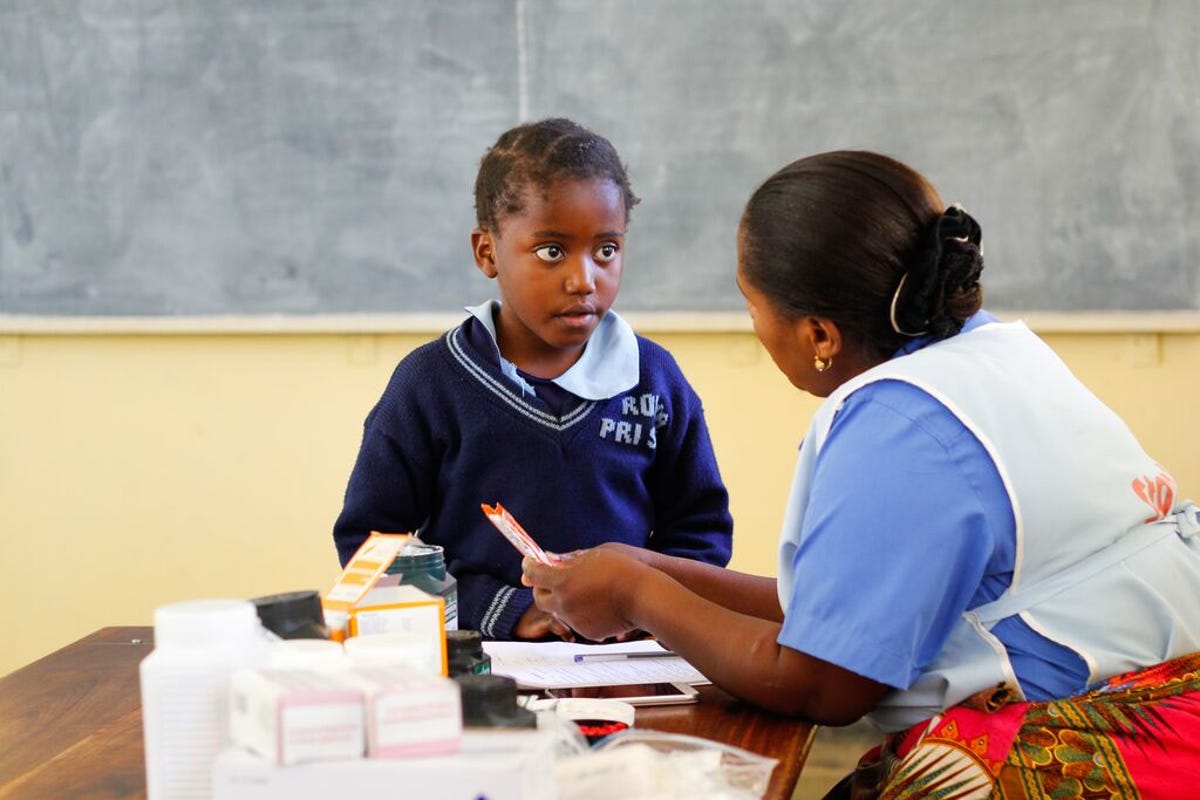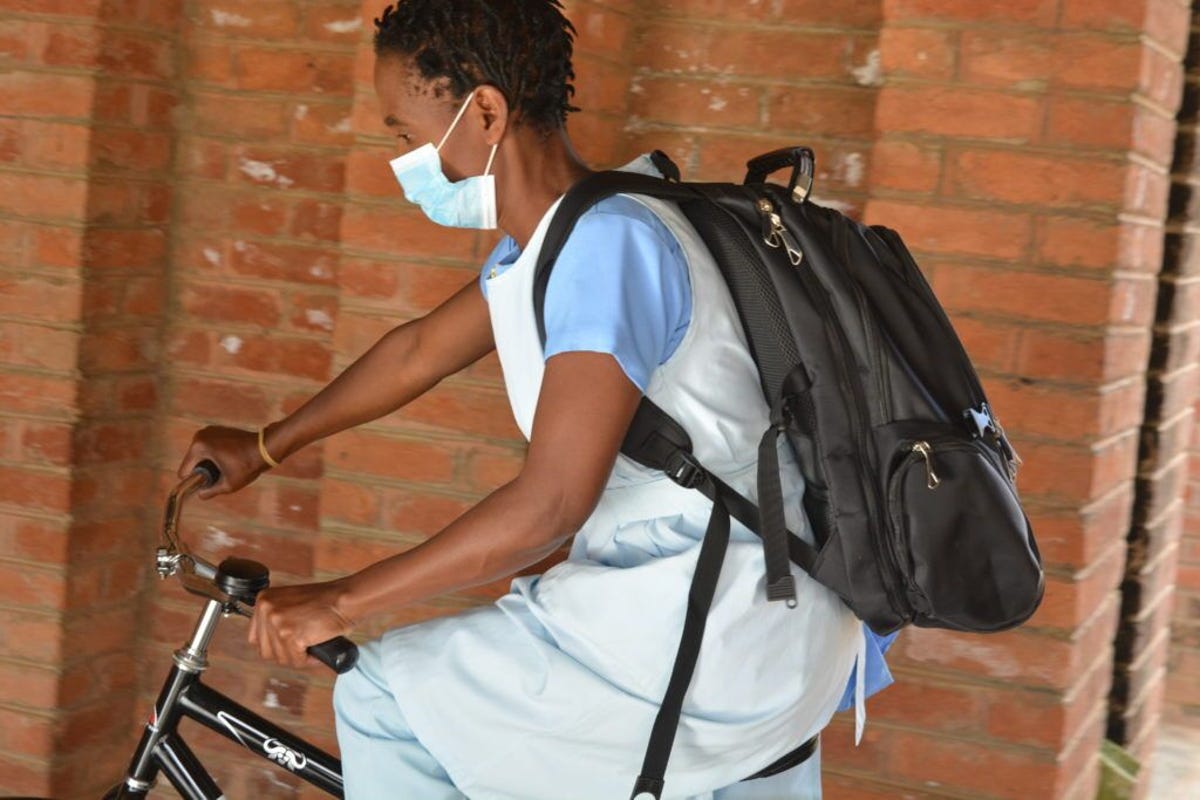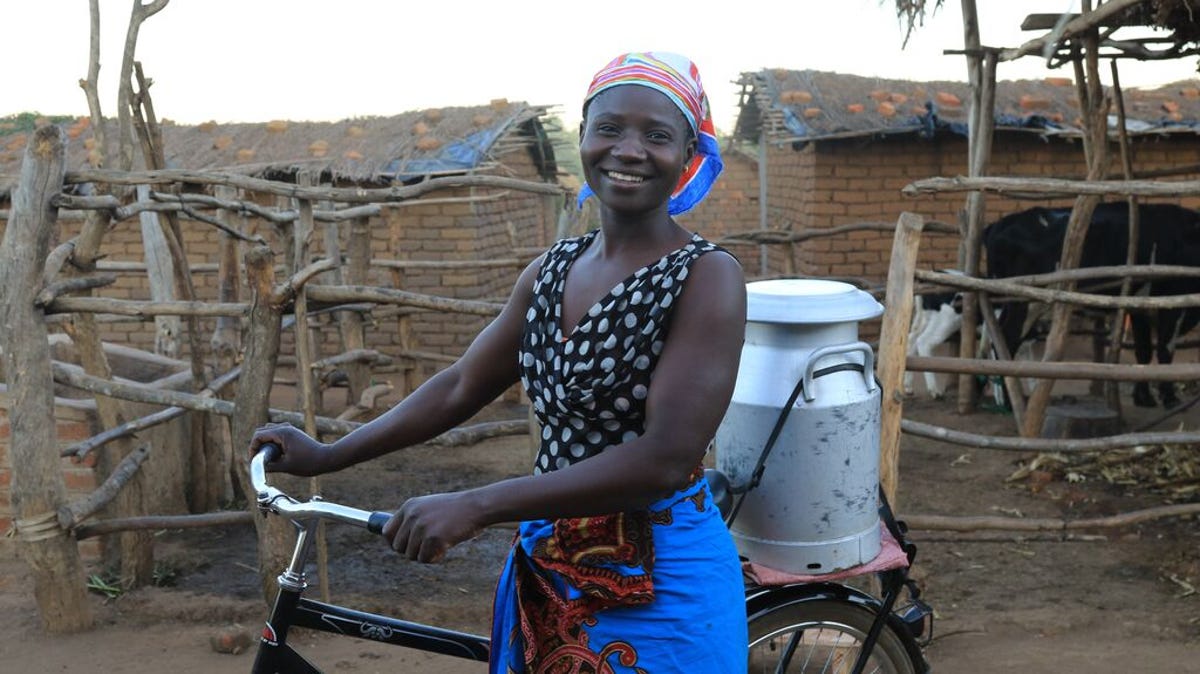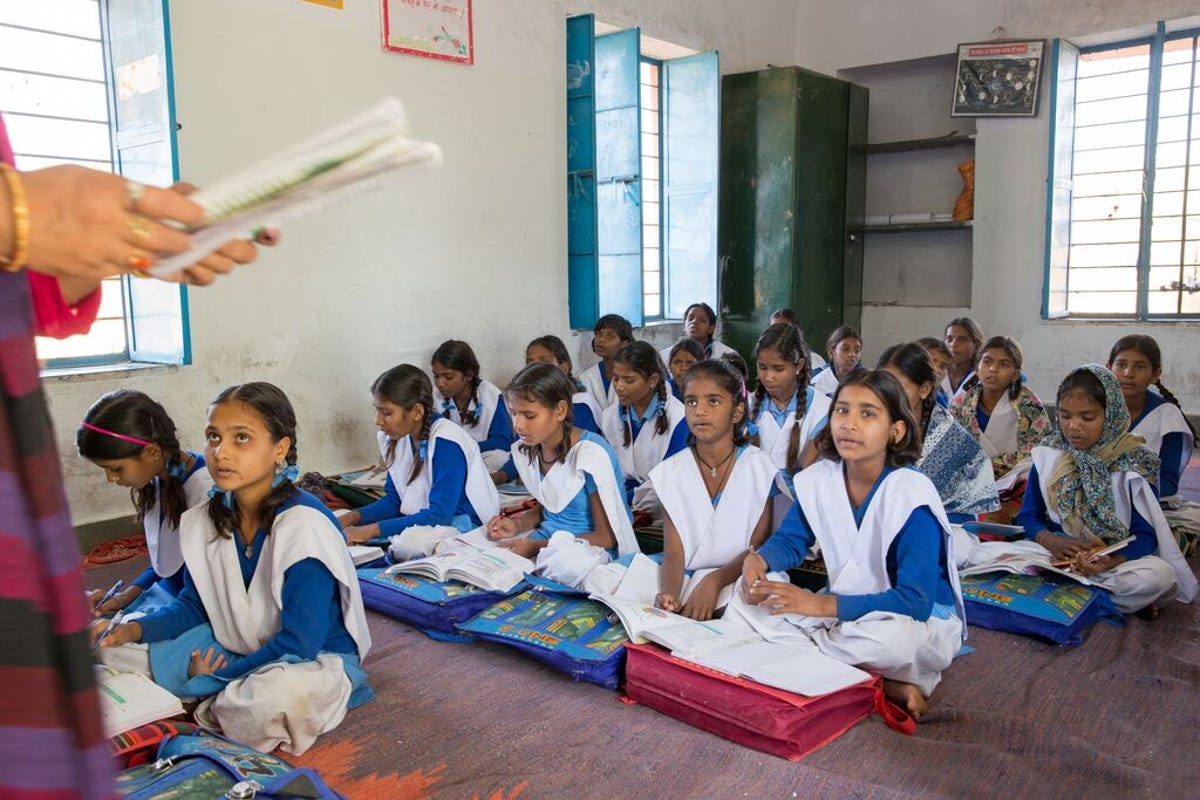Data and evidence tools for global development leaders
IDinsight is driving the social sector to make better decisions through data. Educate Girls, Healthy Learners and World Bicycle Relief are among those to receive its expert support.
© Educate Girls
Cartier Philanthropy’s approach to capacity-building recognises that non-profits require, in addition to funding, a vast array of capabilities to enhance programme design, improve implementation and maximise their social impact. By connecting grantees with specialist organisations who have a strong track record of supporting non-profits with their challenges, we can ensure our support is tailored effectively.
We spoke with Hamza Zakraoui, Chief of Staff for West & North Africa at IDinsight, to find out how their expertise helps grantees be better at what they do.
THE POWER OF DATA
IDinsight is a global advisory, data analytics, and research organisation that uses a wide range of cutting-edge data and evidence tools – such as randomised evaluations, large-scale surveys, monitoring systems, and data science – to strengthen the impact of social sector leaders and solve critical challenges.
“IDinsight was founded to support global development leaders make better decisions based on data,” explains Hamza Zakraoui, Chief of Staff for West & North Africa. “We felt there was a lack of support available for public decision-makers to find practical solutions to their challenges, and to design and implement better public policies and social programmes using data and evidence.”
IDinsight provides its expertise not only to philanthropic and non-profit organisations around the world, but also to national and state governments in Africa and Asia. “Most governments we work with have abundant data resources but face challenges in unlocking its full potential,” says Hamza. “Effective governance requires not just access to data but the ability to interpret, visualise, and analyse it accurately. It's crucial to understand the narrative within the data before embarking on the design and implementation of public policies and programmes.”
“For example, if a government aims to enhance students' academic outcomes, boost vaccination rates, or optimise public spending efficiency, a precise understanding of the implications and potential impact of various measures is needed. This precision can only be achieved through evidence-based data analysis.”
When working with non-profits, IDinsight’s support ranges across several different areas, including strengthening Monitoring, Evaluation and Learning (MEL) systems, conducting impact evaluations, and using data analytics to inform decision-making. It also uses data science and machine learning to provide crucial tweaks to programmes that save both time and money.
“We’ve worked with Educate Girls in India since 2015. This non-profit has been bringing out-of-school, marginalised girls back into classrooms for years,” explains Hamza. “By leveraging the Government’s existing investment in schools and engaging with a huge base of community volunteers, Educate Girls helps to identify, enrol and retain out-of-school girls and improve foundational skills for all children. Their identification process was being conducted through door-to-door censuses across thousands of villages, which was proving time-consuming and costly, making their target of getting 1.5 million girls back to school by 2024 an immense challenge. They notably needed to find a more cost-effective way to precisely identify which locations had more out-of-school girls, and there was a way of doing that: data science.”
“By leveraging satellite imagery – which anyone can access – and machine learning, as well as existing government data, we were able to work out the clusters of villages where to expect the highest dropout rates. Concentrating their resources on these clusters of villages has enabled Educate Girls to identify and reach approximately 600,000 more girls while expending similar levels of resources.”
In 2020, having seen how their cutting-edge expertise made such an impact for Educate Girls, Cartier Philanthropy officially partnered with IDinsight to bring this kind of invaluable support to grantees. We have since connected them with nine non-profits, mainly providing support in areas such as Monitoring & Evaluation MEL and data integration.
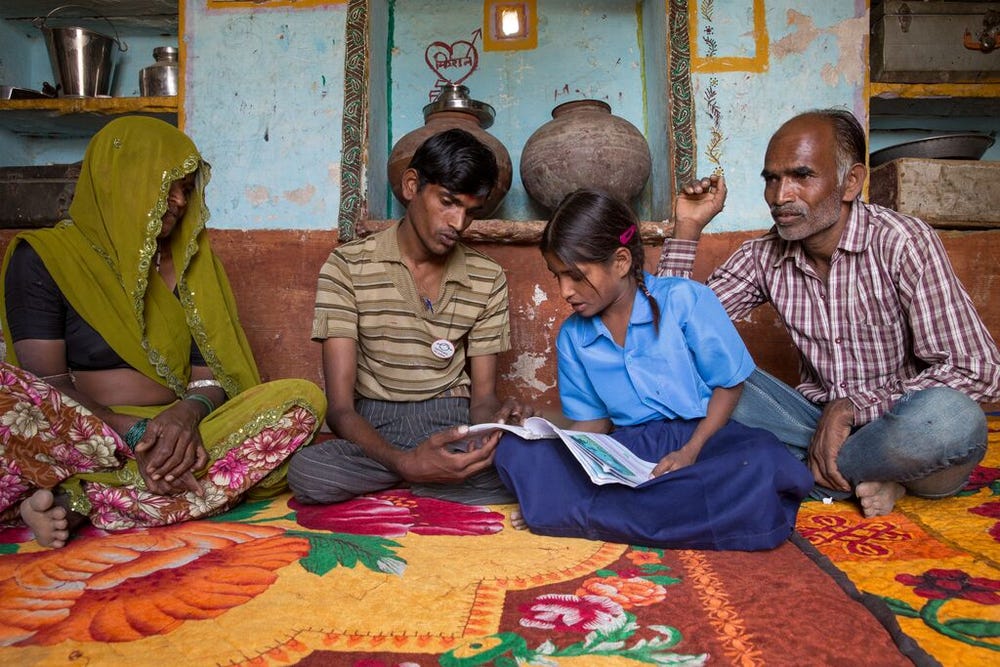
© Cartier Philanthropy / Cyril le Tourneur
HEALTHY STUDENTS AND MOTIVATED TEACHERS
One of these is Healthy Learners, a non-profit which works to improve the health of children in Zambia through school-based healthcare. More than 40% of schoolchildren in Zambia regularly suffer from easily treatable illnesses that prevent them from attending school. To ensure kids stay in school and learn, Healthy Learners brings healthcare to them, training and equipping teachers to become school health workers. These teachers monitor students’ health, assess children who are unwell, treat mild conditions and refer children with more serious issues to health facilities.
“Healthy Learners wanted to scale up their programme from Lusaka to the rest of Zambia.” Hamza explains. “In order to do this, they needed to understand how their programme was performing and to find out their main bottlenecks, if any, and solve them. We helped them identify key areas to focus on, including refining their Theory of Change, developing new data collection tools, and designing feedback measurement systems.”
One of the aims for Healthy Learners during this process was making sure that the teachers, who deliver the school-based healthcare, felt valued and motivated. Their programme was clearly working for the students, with improved healthcare access leading to a reduction in absenteeism and morbidity. But looking after the teachers is just as important for the success of their model. “We were excited to partner with IDinsight to develop and implement a stakeholder feedback system to systematically gather feedback from our school-based teachers ,” says Healthy Learners President, Lonnie Hackett. “We are now using this data to inform our decision-making and planning and maintain strong relationships with the 4,000+ teachers."
As a result of IDinsight’s support, Healthy Learners has successfully refined its model in Lusaka, with more than 115,000 students benefitting annually from timely access to essential healthcare services. The organisation has now signed a memorandum with the Zambian government to scale the programme in the rest of the country and hopes for Zambia to serve as a model for the wider region to improve the health of school-aged children.
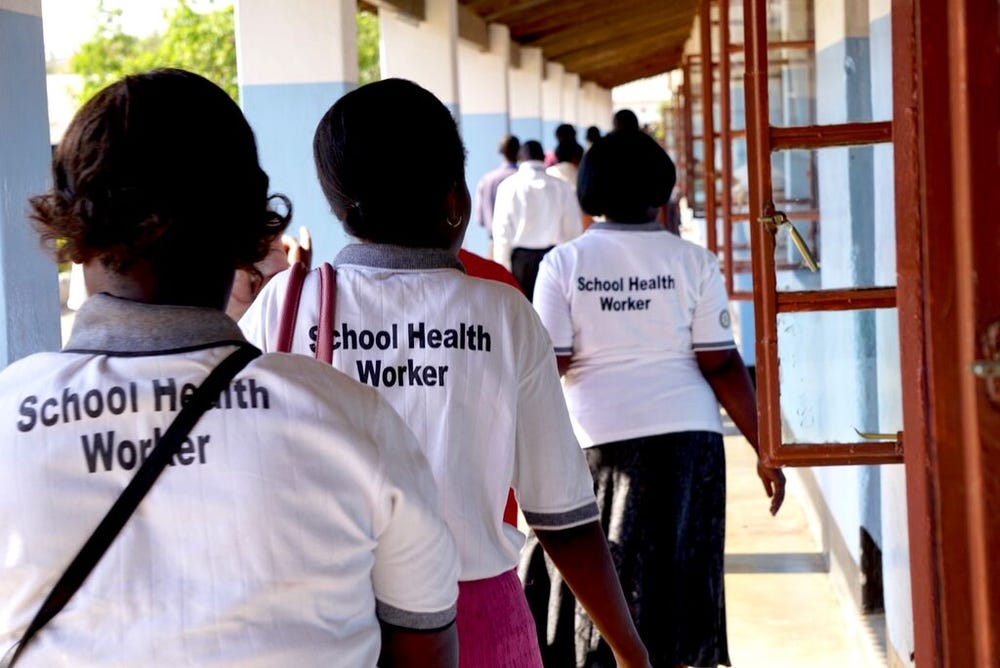
© Healthy Learners
BUILDING STRONGER COMMUNITIES WITH BICYCLES
World Bicycle Relief also collaborated with IDinsight. There are nearly 1 billion people globally who are at risk of being left behind because the services they need – education, healthcare, markets – are simply out of reach. World Bicycle Relief aims to overcome the challenge of distance by providing specially designed bicycles to people in rural communities, particularly women and girls who can’t afford them. World Bicycle Relief’s social enterprise ensures the creation of a local, sustainable bicycle ecosystem, that includes assembly and distribution warehouses, spare parts supply chains, bicycle retail shops and a network of locally trained mechanics.
In 2020-2021, Word Bicycle Relief launched a new programme called Mobilized Communities, through which vulnerable adults and children in a targeted community are provided bicycles to access health, education, conservation, and economic opportunities. This programme empowers community representatives to distribute bicycles, deviating from the previous direct distribution approach used by World Bicycle Relief.
To understand how the Mobilized Communities programme compares to the direct distribution model and influences the social and economic welfare of adult recipients, World Bicycle Relief and IDinsight designed an impact evaluation. This aims to estimate how the programmes will affect four areas: household income and expenditure, individual and household productivity, access to essential services, and women’s empowerment.
“With the design phase complete, we’re now supporting World Bicycle Relief to conduct this impact evaluation,” explains Hamza. “This will guide their programme decisions and future scale-up. It stands as one of the first evaluations to rigorously assess how the distribution of bicycles impacts livelihoods, and it will inform the sector on this innovative approach to equipping remote rural communities.”
World Bicycle Relief has distributed 785,000 bicycles worldwide so far and hopes to reach 1 million by 2025. Its work with IDinsight will help implement its programmes more effectively, putting its long-term goals within reach.
“The collaborative model championed by Cartier Philanthropy, fostering partnerships between non-profits and specialised non-profit organisations like IDinsight is truly visionary, and we are already witnessing some substantial, long-term benefits,” states Hamza. “The expertise brought by IDinsight and other organisations like us is fostering a valuable knowledge exchange that fortifies the international development ecosystem.”

